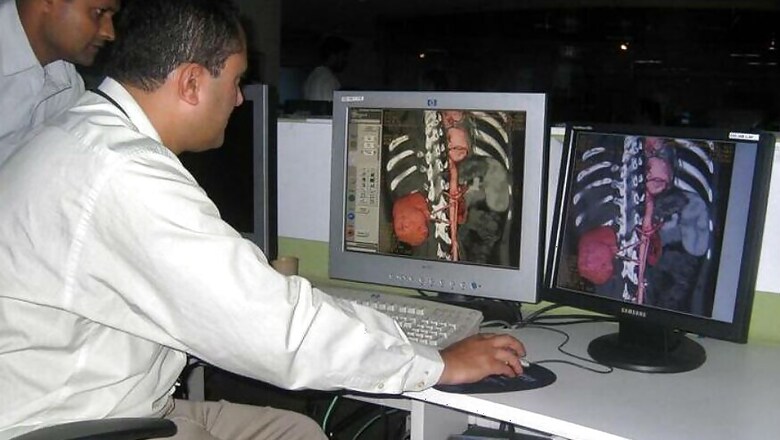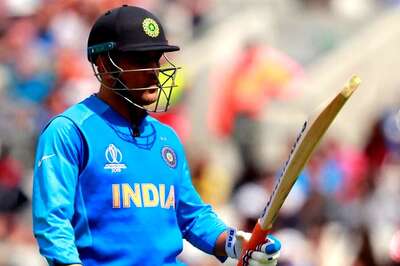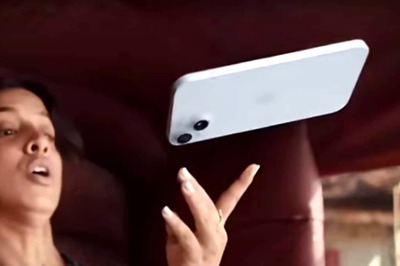
views
The crucial measure of social distancing against the backdrop of the Covid-19 crisis has once again kicked off a debate on telemedicine. Many experts believe that it can be vital for outpatient care and a possible way forward keeping in mind our rural and urban configuration.
When the pandemic ends, challenges are going to be manifold and our response should be appropriate. It is possible that those fighting this outbreak commit some error because they are fighting it for the first time, but they are also likely to learn many lessons from this experience and telemedicine could be one of them. Our strategy and future policy should be designed based on our experience and the challenges we faced during this pandemic. As we move forward, health experts and researchers will surely put their heads together to ponder over requisite and sustainable measures to deal with such situations if any occur.
India had formally recognised the practice of telemedicine very recently. The guidelines, prepared by the Medical Council of India (MCI) board of governors and government think tank NITI Aayog had legitimised the practice of remote consultations through telemedicine and providing doctors with practical guidance on the process of remote consultations. This could pave the way for widespread adoption of telemedicine not only during the present crisis but also in the future.
The use of telemedicine could be of great value in India’s smaller cities, towns and rural areas where there is a severe shortage of doctors. According to an estimate, around 70 per cent of the country's population lives in the backwoods. Telemedicine has been much in use in America and China amid the pandemic and experts in India have also suggested its wide use here.
Dr Abha Agrawal is an alumnus of Harvard and Yale universities, the founder of A4 Clinics and a US board certified practising physician in internal medicine and clinical informatics. She has been seeing patients via telemedicine for the last five years. She also developed a telemedicine (dermatology) solution for the department of veterans affairs, USA back in 2003.
“The world has changed overnight with the Covid-19 pandemic. We are learning that social distancing is one of the most important aspects to contain the damage to human lives caused by this pandemic. Access to high quality, timely healthcare is emerging as one of the biggest challenges of this time. A lot of focus is placed on ventilators, PPE and sanitisers for hospitals and healthcare workers,” she said.
“What is heartening is that another revolution is taking place quietly that will change the way healthcare is delivered to millions of people around the world. This revolution is called telemedicine or virtual care. While telemedicine has been around for many years, given the contagiousness of Covid-19, this seems to be a perfect solution. Patients and doctors connect over video or telephone to deliver care. Research shows that 85 per cent of the outpatient care can be safely and accurately delivered without the need for a physical visit and physical examination.”
Telemedicine is the safest way to receive care and the safest way to provide care, Dr Agrawal added. "For every patient seen via telemedicine, there is a reduction in the risk of community spread to many other people. It has a lot of scope for the future in the wake of Covid-19. Already many apps have this facility, but now many pre-existing apps are wooing patients through them," she said.
Padma Shri Prof Dr M Wali, former physician to three Presidents of India and senior consultant in medicine at Sir Ganga Ram Hospital and Fortis Hospital in New Delhi, said doctors should have a personal backup system through their individual phones and desktops to maintain privacy. "I am of the opinion that not only do these app companies charge fees for fixing consultation which ranges from 20 to 30 per cent, but they have access to your personal data. They create a database which violates the privacy norms which patients never understand,” said Dr Wali. “The best solution is that doctors remain available on phone and WhatsApp, Skype... Patient’s privacy and physical examination can be done on virtual basis. We have programmes based on which we can virtually guide some procedures and some operations on standard modules. Sometimes patients need full consultations on a day-to-day basis by sharing their history and reports on virtual platforms. Telemedicine has a bright future and is the need for today and future generations.”
The world has to respond swiftly to the impact of the Covid-19 virus and telemedicine is rapidly being taken up to help health professionals and patients to reduce the risk of exposure , said Dr M Wasim Ghori, Fellow of the Royal Society of Public Health, London and executive director of Medical and Health Information Management Association (MaHIMA). "Just over two years ago, I was discussing the importance of telemedicine and remote diagnostics for rural Indian healthcare at World Health Day celebrations, and now we are facing a real demonstration on how telemedicine is taking the pressure off the healthcare system in an emergency situation and saving lives,” he said.
“Furthermore, many of the stop-gap solutions for the next few months could become our new normal. Digital payments in a post-demonetisation India and surveillance in the post-9/11 America are prime examples. The current push for telemedicine could lead to wide adoption of e-health services in the long run. This could not only help in popularising remote consultations but also inter-operable solutions that connect patients, doctors, diagnostic clinics and pharmacies especially in India’s smaller towns and rural areas where there is a severe shortfall of doctors.”
The current environment, the government’s patronage and the rise of startups may provide the push necessary for India to embrace telemedicine as the new way of life, Ghori added. "However the sudden rush towards telemedicine risks diminishing the quality of clinical care. It’s inexpensive and expedient, but it’ll never be the same as a physical examination with all of its human qualities of judgment and communication. But, with Covid-19, this is a trade-off, we have to accept.”
(The author is a freelance journalist. Views expressed are personal.)


















Comments
0 comment